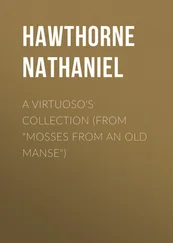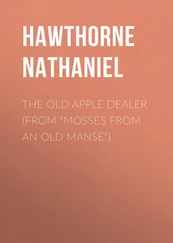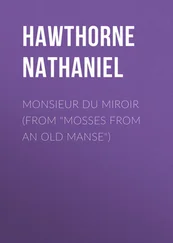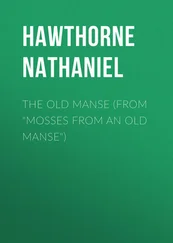Nathaniel Hawthorne - Our Old Home - A Series of English Sketches
Здесь есть возможность читать онлайн «Nathaniel Hawthorne - Our Old Home - A Series of English Sketches» — ознакомительный отрывок электронной книги совершенно бесплатно, а после прочтения отрывка купить полную версию. В некоторых случаях можно слушать аудио, скачать через торрент в формате fb2 и присутствует краткое содержание. Жанр: literature_19, foreign_antique, foreign_prose, на английском языке. Описание произведения, (предисловие) а так же отзывы посетителей доступны на портале библиотеки ЛибКат.
- Название:Our Old Home: A Series of English Sketches
- Автор:
- Жанр:
- Год:неизвестен
- ISBN:нет данных
- Рейтинг книги:4 / 5. Голосов: 1
-
Избранное:Добавить в избранное
- Отзывы:
-
Ваша оценка:
- 80
- 1
- 2
- 3
- 4
- 5
Our Old Home: A Series of English Sketches: краткое содержание, описание и аннотация
Предлагаем к чтению аннотацию, описание, краткое содержание или предисловие (зависит от того, что написал сам автор книги «Our Old Home: A Series of English Sketches»). Если вы не нашли необходимую информацию о книге — напишите в комментариях, мы постараемся отыскать её.
Our Old Home: A Series of English Sketches — читать онлайн ознакомительный отрывок
Ниже представлен текст книги, разбитый по страницам. Система сохранения места последней прочитанной страницы, позволяет с удобством читать онлайн бесплатно книгу «Our Old Home: A Series of English Sketches», без необходимости каждый раз заново искать на чём Вы остановились. Поставьте закладку, и сможете в любой момент перейти на страницу, на которой закончили чтение.
Интервал:
Закладка:
The English sketches which I have been offering to the public comprise a few of the more external and therefore more readily manageable things that I took note of, in many escapes from the imprisonment of my consular servitude. Liverpool, though not very delightful as a place of residence, is a most convenient and admirable point to get away from. London is only five hours off by the fast train. Chester, the most curious town in England, with its encompassing wall, its ancient rows, and its venerable cathedral, is close at hand. North Wales, with all its hills and ponds, its noble sea-scenery, its multitude of gray castles and strange old villages, may be glanced at in a summer day or two. The lakes and mountains of Cumberland and Westmoreland may be reached before dinner-time. The haunted and legendary Isle of Man, a little kingdom by itself, lies within the scope of an afternoon's voyage. Edinburgh or Glasgow are attainable over night, and Loch Lomond betimes in the morning. Visiting these famous localities, and a great many others, I hope that I do not compromise my American patriotism by acknowledging that I was often conscious of a fervent hereditary attachment to the native soil of our forefathers, and felt it to be our own Old Home.
LEAMINGTON SPA
In the course of several visits and stays of considerable length we acquired a homelike feeling towards Leamington, and came back thither again and again, chiefly because we had been there before. Wandering and wayside people, such as we had long since become, retain a few of the instincts that belong to a more settled way of life, and often prefer familiar and commonplace objects (for the very reason that they are so) to the dreary strangeness of scenes that might be thought much better worth the seeing. There is a small nest of a place in Leamington – at No. 10, Lansdowne Circus – upon which, to this day, my reminiscences are apt to settle as one of the coziest nooks in England or in the world; not that it had any special charm of its own, but only that we stayed long enough to know it well, and even to grow a little tired of it. In my opinion, the very tediousness of home and friends makes a part of what we love them for; if it be not mixed in sufficiently with the other elements of life, there may be mad enjoyment, but no happiness.
The modest abode to which I have alluded forms one of a circular range of pretty, moderate-sized, two-story houses, all built on nearly the same plan, and each provided with its little grass-plot, its flowers, its tufts of box trimmed into globes and other fantastic shapes, and its verdant hedges shutting the house in from the common drive and dividing it from its equally cosey neighbors. Coming out of the door, and taking a turn round the circle of sister-dwellings, it is difficult to find your way back by any distinguishing individuality of your own habitation. In the centre of the Circus is a space fenced in with iron railing, a small play-place and sylvan retreat for the children of the precinct, permeated by brief paths through the fresh English grass, and shadowed by various shrubbery; amid which, if you like, you may fancy yourself in a deep seclusion, though probably the mark of eye-shot from the windows of all the surrounding houses. But, in truth, with regard to the rest of the town and the world at large, all abode here is a genuine seclusion; for the ordinary stream of life does not run through this little, quiet pool, and few or none of the inhabitants seem to be troubled with any business or outside activities. I used to set them down as half-pay officers, dowagers of narrow income, elderly maiden ladies, and other people of respectability, but small account, such as hang on the world's skirts rather than actually belong to it. The quiet of the place was seldom disturbed, except by the grocer and butcher, who came to receive orders, or by the cabs, hackney-coaches, and Bath-chairs, in which the ladies took an infrequent airing, or the livery-steed which the retired captain sometimes bestrode for a morning ride, or by the red-coated postman who went his rounds twice a day to deliver letters, and again in the evening, ringing a hand-bell, to take letters for the mail. In merely mentioning these slight interruptions of its sluggish stillness, I seem to myself to disturb too much the atmosphere of quiet that brooded over the spot; whereas its impression upon me was, that the world had never found the way hither, or had forgotten it, and that the fortunate inhabitants were the only ones who possessed the spell-word of admittance. Nothing could have suited me better, at the time; for I had been holding a position of public servitude, which imposed upon me (among a great many lighter duties) the ponderous necessity of being universally civil and sociable.
Nevertheless, if a man were seeking the bustle of society, he might find it more readily in Leamington than in most other English towns. It is a permanent watering-place, a sort of institution to which I do not know any close parallel in American life: for such places as Saratoga bloom only for the summer-season, and offer a thousand dissimilitudes even then; while Leamington seems to be always in flower, and serves as a home to the homeless all the year round. Its original nucleus, the plausible excuse for the town's coming into prosperous existence, lies in the fiction of a chalybeate well, which, indeed, is so far a reality that out of its magical depths have gushed streets, groves, gardens, mansions, shops, and churches, and spread themselves along the banks of the little river Leam. This miracle accomplished, the beneficent fountain has retired beneath a pump-room, and appears to have given up all pretensions to the remedial virtues formerly attributed to it. I know not whether its waters are ever tasted nowadays; but not the less does Leamington – in pleasant Warwickshire, at the very midmost point of England, in a good hunting neighborhood, and surrounded by country-seats and castles – continue to be a resort of transient visitors, and the more permanent abode of a class of genteel, unoccupied, well-to-do, but not very wealthy people, such as are hardly known among ourselves. Persons who have no country-houses, and whose fortunes are inadequate to a London expenditure, find here, I suppose, a sort of town and country life in one.
In its present aspect the town is of no great age. In contrast with the antiquity of many places in its neighborhood, it has a bright, new face, and seems almost to smile even amid the sombreness of an English autumn. Nevertheless, it is hundreds upon hundreds of years old, if we reckon up that sleepy lapse of time during which it existed as a small village of thatched houses, clustered round a priory; and it would still have been precisely such a rural village, but for a certain Dr. Jephson, who lived within the memory of man, and who found out the magic well, and foresaw what fairy wealth might be made to flow from it. A public garden has been laid out along the margin of the Leam, and called the Jephson Garden, in honor of him who created the prosperity of his native spot. A little way within the garden-gate there is a circular temple of Grecian architecture, beneath the dome of which stands a marble statue of the good Doctor, very well executed, and representing him with a face of fussy activity and benevolence: just the kind of man, if luck favored him, to build up the fortunes of those about him, or, quite as probably, to blight his whole neighborhood by some disastrous speculation.
The Jephson Garden is very beautiful, like most other English pleasure-grounds; for, aided by their moist climate and not too fervid sun, the landscape-gardeners excel in converting flat or tame surfaces into attractive scenery, chiefly through the skilful arrangement of trees and shrubbery. An Englishman aims at this effect even in the little patches under the windows of a suburban villa, and achieves it on a larger scale in a tract of many acres. The Garden is shadowed with trees of a fine growth, standing alone, or in dusky groves and dense entanglements, pervaded by woodland paths; and emerging from these pleasant glooms, we come upon a breadth of sunshine, where the greensward – so vividly green that it has a kind of lustre in it – is spotted with beds of gemlike flowers. Rustic chairs and benches are scattered about, some of them ponderously fashioned out of the stumps of obtruncated trees, and others more artfully made with intertwining branches, or perhaps an imitation of such frail handiwork in iron. In a central part of the Garden is an archery-ground, where laughing maidens practise at the butts, generally missing their ostensible mark, but, by the mere grace of their action, sending an unseen shaft into some young man's heart. There is space, moreover, within these precincts, for an artificial lake, with a little green island in the midst of it; both lake and island being the haunt of swans, whose aspect and movement in the water are most beautiful and stately, – most infirm, disjointed, and decrepit, when, unadvisedly, they see fit to emerge, and try to walk upon dry land. In the latter case, they look like a breed of uncommonly ill-contrived geese; and I record the matter here for the sake of the moral, – that we should never pass judgment on the merits of any person or thing, unless we behold them in the sphere and circumstances to which they are specially adapted. In still another part of the Garden there is a labyrinthine maze, formed of an intricacy of hedge-bordered walks, involving himself in which, a man might wander for hours inextricably within a circuit of only a few yards. It seemed to me a sad emblem of the mental and moral perplexities in which we sometimes go astray, petty in scope, yet large enough to entangle a lifetime, and bewilder us with a weary movement, but no genuine progress.
Читать дальшеИнтервал:
Закладка:
Похожие книги на «Our Old Home: A Series of English Sketches»
Представляем Вашему вниманию похожие книги на «Our Old Home: A Series of English Sketches» списком для выбора. Мы отобрали схожую по названию и смыслу литературу в надежде предоставить читателям больше вариантов отыскать новые, интересные, ещё непрочитанные произведения.
Обсуждение, отзывы о книге «Our Old Home: A Series of English Sketches» и просто собственные мнения читателей. Оставьте ваши комментарии, напишите, что Вы думаете о произведении, его смысле или главных героях. Укажите что конкретно понравилось, а что нет, и почему Вы так считаете.












